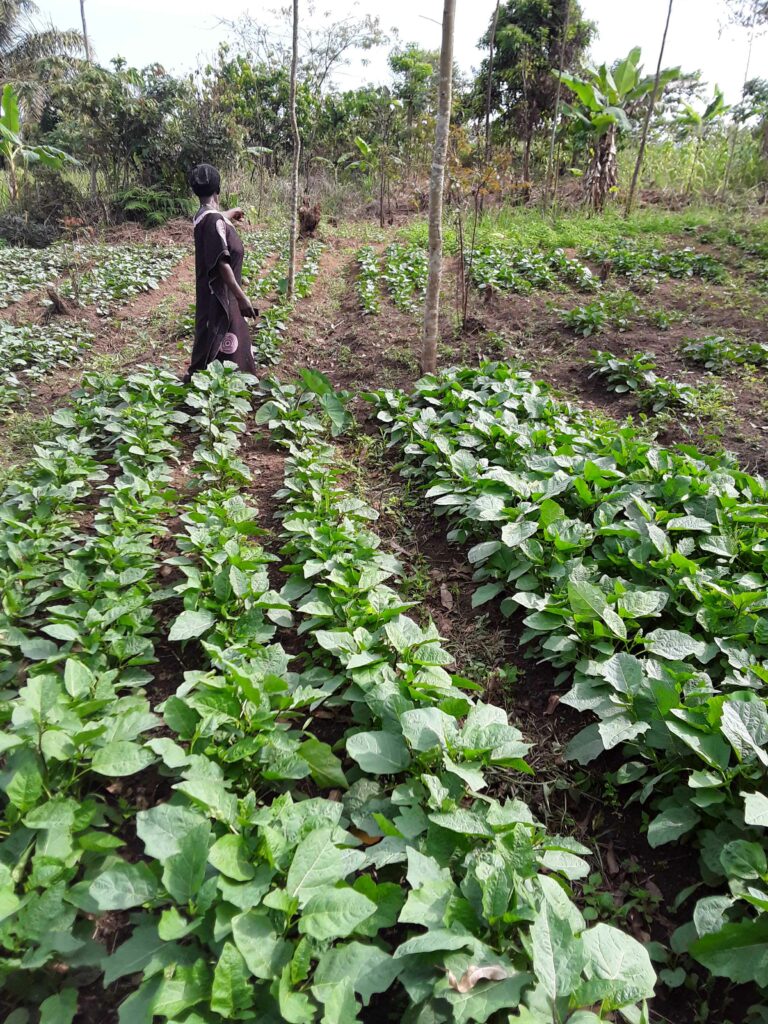By Agnes Nantambi
Researchers at the Uganda Christian University, Mukono are exploring the viability of Nakati seeds to increase its productivity.
Led by Prof. Elizabeth Balyejusa Kizito the Director Research, Partnership and Innovation at UCU, they have introduced three varieties which are high-yielding, drought-tolerant, disease-resistant, high-leafy yet firster growing.
Prof. Balyejusa a plant breeder with expertise in indigenous vegetables, was inspired to take on the research after having a child who refused to eat food for a whole week but just decided to eat vegetables due to a serious allergic reaction.
“I was very much surprised that for just one week without any medicine, the child’s skin normalized and I realised I needed to do something about this, “she explained.
After venturing into the research for the last 10 years ago, she realized there is not enough knowledge in the public about the importance of growing and consuming Nakati.
“For instance, when one needed seeds for Nakati, everybody would go to Container village but planting these seeds, the output would be full of Nakati, Ntula, Bitengotengo and Bbuga in the same lot of seeds, which indicated an issue in the quality of seeds.
If you say you are buying a real Nakati pack, do you really get the real Nakati variety, because there were issues of Quality and germination, where one buys a pack and out of 100grams seed, you only get 20 plants, an indication of quality issues, “she explained.

The other issue she said would be availability of seed especially for people coming from places like Mbale, Masindi, Kanungu and Arua and we were asking how better can we improve the availability of quality seeds to the farmers through innovation.
“We were stimulated by the fact that these vegetables are very rich in nutrients, but lacked documentation on them regarding their importance,” she explained
she observed that many young generations from urban centers do not know about the benefit or the value of indigenous vegetables prompting them to start documenting them.
With a PhD is plant breeding Prof. Balyejusa decided to venture into improving nutritional security of Nakati through breeding and purifying it through conventional breeding.
“Being one of the first research done on Nakati in the whole of Africa, one of the things we wanted to move into in terms of innovating was the improvement of the seed system for our indigenous vegetables.
We started on a variety development, and over the years we have been able to release three varieties which are UCU-NAK 1, UCU- NAK2 and UCU-NAK3.
We went through the seed certification process of the Ministry of Agriculture and the National seed certification committee and improved seed varieties are now readily available, “she said.
Their uniqueness according to Kizito, is that they are first Nakati varieties generated from the landraces to pure lines.one of them has a unique property of being drought tolerant.
“Most times Nakati is grown in wetlands but this can be grown reasonably well in upland locations because it doesn’t need too much water to get that good yield.
We did some consumer surveys and we wanted products which would be appreciated and have acceptability in the market with consumers, “she said.
During the market survey, most people she said wanted Nakati which is bitter, and they had to make sure that it remains bitter, but again not so bitter because there is that which taste like chroquine but people prefer it when they have malaria.
The varieties she said are unique in terms of outlook, unique in preference, very good yielding, and have a standard maturing period of 8weeks after planting.
Challenges
She admits that seed quality is still one of the biggest challenges facing Nakati growing and viability because it does not stay for long.
Drought is another real challenge for Nakati which makes it more bitter requiring a lot of water in order to be grown.
Nakati is an indigenous crop and we have realised it does not grow well in colder regions and finding varieties which can adapt to certain weather conditions is still a big challenge.
Balyejusa underscored the need for a bigger promotion drive for consuming the indigenous vegetables for the attainment of their nutrient values.
She implored the food scientists to innovate a lot more in value addition in foods like Nakati, Ejjobyo and Marakwang among others saying their nutritional values is very important.
She said currently, they are doing a lot of research on impact of consuming Nakati in non-communicable diseases but said the findings are very interesting.





